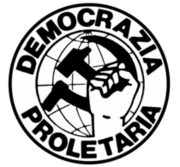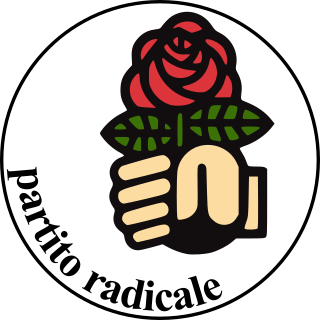
The Radical Party was a liberal and libertarian political party in Italy.

The Federation of the Greens, frequently referred to as Greens (Verdi), was a green political party in Italy. It was formed in 1990 by the merger of the Federation of Green Lists and the Rainbow Greens.

The Party of Italian Communists was a communist party in Italy established in October 1998 by splinters from the Communist Refoundation Party (PRC). The split was led by Armando Cossutta, founder and early leader of the PRC, who opposed Fausto Bertinotti's leaderhip and, especially, his decision to withdraw support from Romano Prodi's first cabinet. In December 2014, the party was transformed into the Communist Party of Italy (PCd'I), which would later evolve into the new version of the Italian Communist Party (PCI).

Fausto Bertinotti is an Italian politician who led the Communist Refoundation Party from 1994 to 2006. On 29 April 2006, after the centre-left coalition's victory in the Italian general election, he was elected President of the Chamber of Deputies, a position he held until 2008.

Mario Capanna is an Italian politician and writer.
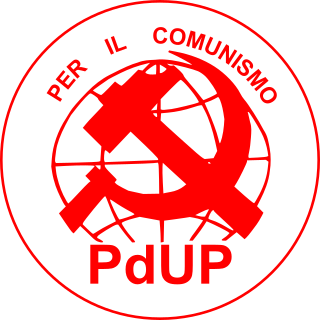
The Proletarian Unity Party was a far-left political party in Italy.

The 1992 Italian general election was held on 5 and 6 April 1992. They were the first without the traditionally second most important political force in Italian politics, the Italian Communist Party (PCI), which had been disbanded in 1991. Most of its members split between the more democratic-socialist oriented Democratic Party of the Left (PDS), while a minority who did not want to renounce the communist tradition became the Communist Refoundation Party (PRC); however, between them they gained around 4% less than what the already declining PCI had obtained in the 1987 Italian general election, despite PRC absorbing the disbanded Proletarian Democracy (DP).
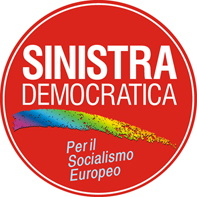
Democratic Left, whose complete name was Democratic Left. For European Socialism, was a democratic-socialist political party in Italy.

Vittorio Foa was an Italian politician, trade unionist, journalist, and writer.
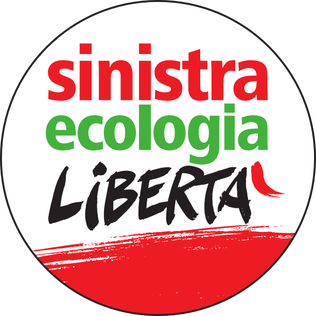
Left Ecology Freedom was a democratic socialist political party in Italy whose bulk was formed by former members of the Communist Refoundation Party.

The Legislature VII of Italy was the 7th legislature of the Italian Republic, and lasted from 5 July 1976 until 19 June 1979. Its composition was the one resulting from the general election of 20 June 1976.

Paolo Ferrero is an Italian politician. He is a leading member of the Communist Refoundation Party, and served as Minister of Social Solidarity from 2006 to 2008 as part of the Prodi II Cabinet.

The Communist Refoundation Party is a communist political party in Italy that emerged from a split of the Italian Communist Party (PCI) in 1991. The party's secretary is Maurizio Acerbo, who replaced Paolo Ferrero in 2017. Armando Cossutta was the party's founder, while Fausto Bertinotti its longest-serving leader (1994–2008). The latter transformed the PRC from a traditional communist party into a collection of radical social movements.
The centre-left coalition is a political alliance of political parties in Italy active under several forms and names since 1995, when The Olive Tree was formed under the leadership of Romano Prodi. The centre-left coalition has ruled the country for more than fifteen years between 1996 and 2022; to do so, it had mostly to rely on a big tent that went from the more radical left-wing, which had more weight between 1996 and 2008, to the political centre, which had more weight during the 2010s, and its main parties were also part of grand coalitions and national unity governments.

Article One, officially Article 1 – Democratic and Progressive Movement, was a social-democratic political party in Italy.
Camillo Caetani (Gaetano) was an Italian aristocrat and Papal diplomat in several European capitals during the early Counterreformation.

Free and Equal was a left-wing electoral list and parliamentary group in the Chamber of Deputies and a sub-group in the Senate, the two houses of the Italian Parliament. LeU was launched on 3 December 2017 as a federation of political parties including Article 1, Italian Left and Possible. The leader of the alliance for the 2018 general election was Pietro Grasso, former President of the Senate and former anti-Mafia prosecutor. The three founding parties left the alliance in late 2018, but LeU continued to exist in Parliament. Following the 2021 Italian government crisis, LeU had a single minister, Roberto Speranza, in the national unity government of Prime Minister Mario Draghi.
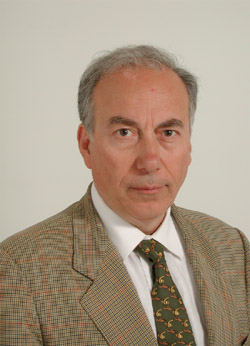
Famiano Crucianelli is an Italian politician and surgeon.
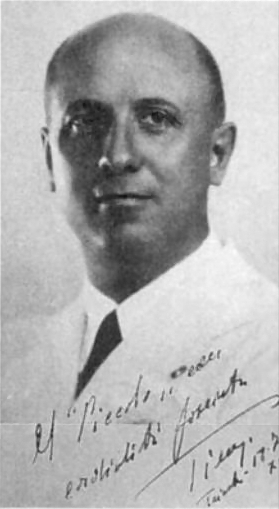
Carlo Tiengo was an Italian Fascist politician and civil servant, Minister of Corporations of the Kingdom of Italy from February to April 1943 and member of the Chamber of Fasces and Corporations. He also served as prefect in several Italian cities, including Trieste, Milan and Turin.

Baron Pietro De Francisci was an Italian jurist and Fascist politician who served as Minister of Justice from 1932 to 1935.
